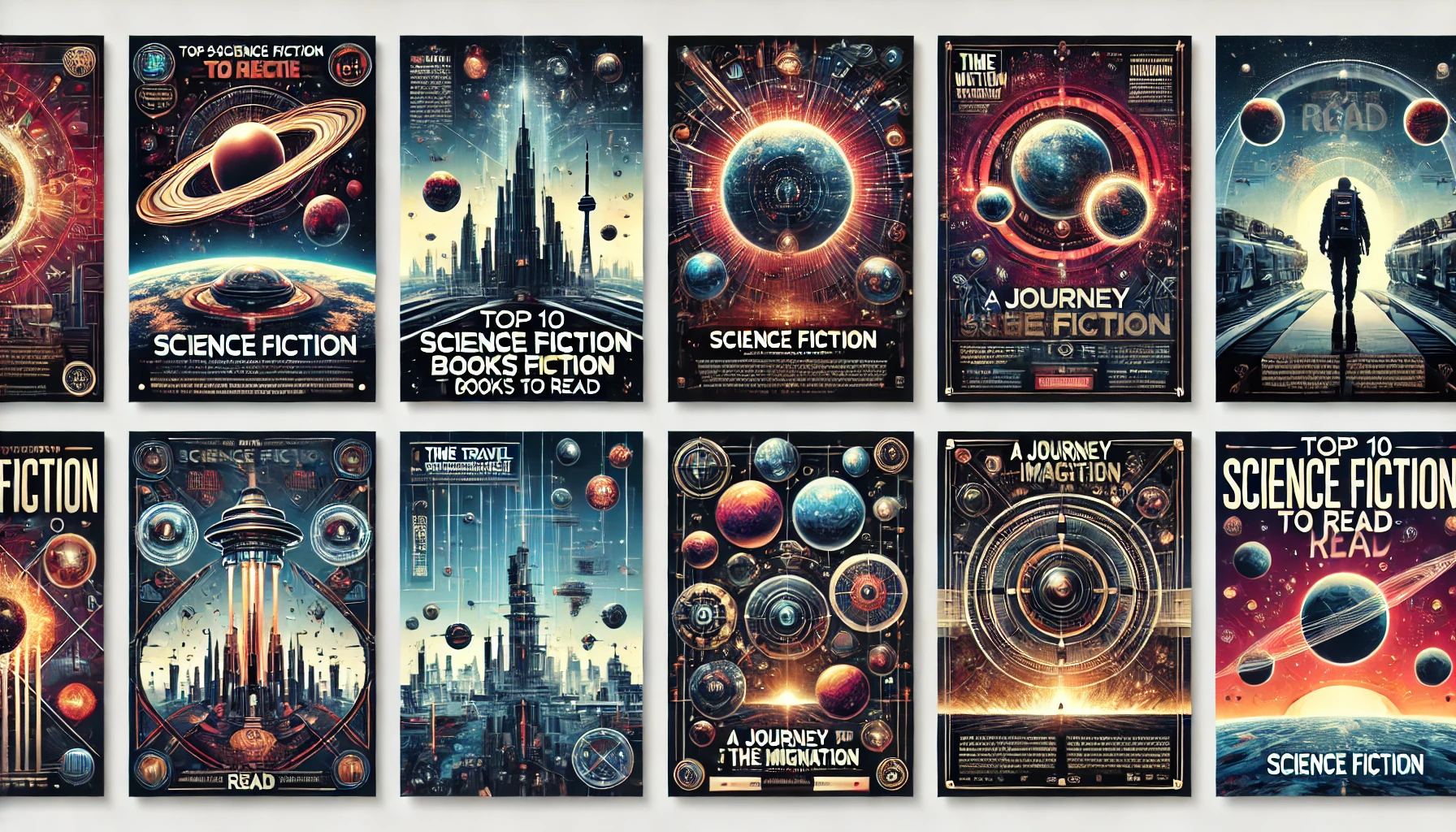Science fiction, as a genre, has always served as a window into the future, exploring the possibilities of what might be and challenging our understanding of reality. Whether you’re a seasoned sci-fi enthusiast or a newcomer to the genre, there’s a universe of incredible books waiting to be explored. Here, we’ve compiled a list of the Top 10 Science Fiction Books to Read that every reader should experience. These selections span the history of the genre, showcasing a variety of styles, themes, and visions that have captivated readers and shaped the landscape of science fiction.
1. “Dune” by Frank Herbert

Overview:
“Dune” is often hailed as one of the greatest science fiction novels of all time. Set in a distant future amidst a vast interstellar empire, the story follows Paul Atreides, a young nobleman who becomes embroiled in a complex struggle for control of the desert planet Arrakis, the only source of a valuable substance known as “spice.”
Why Read It:
Herbert’s intricate world-building, with its detailed ecology, political intrigue, and philosophical depth, sets “Dune” apart as a masterpiece of speculative fiction. The book’s exploration of themes such as power, religion, and humanity’s relationship with the environment remains relevant today.
2. “1984” by George Orwell

Overview:
“1984” is a dystopian novel that paints a chilling picture of a totalitarian regime that uses surveillance, propaganda, and thought control to maintain power. The protagonist, Winston Smith, struggles against the oppressive system in a world where the government seeks to control not just the actions but the thoughts of its citizens.
Why Read It:
Orwell’s vision of a society where freedom is curtailed and truth is manipulated serves as a stark warning about the dangers of authoritarianism. The novel’s exploration of themes like censorship, individuality, and the nature of truth has ensured its enduring relevance.
3. “The Left Hand of Darkness” by Ursula K. Le Guin
Overview:
In “The Left Hand of Darkness,” Le Guin transports readers to the planet Gethen, where inhabitants can change sex at will. The novel follows an envoy from Earth who is sent to make first contact with the Gethenians and struggles to understand their unique culture and gender fluidity.
Why Read It:
Le Guin’s exploration of gender and identity in “The Left Hand of Darkness” was groundbreaking when it was published in 1969 and continues to resonate today. The novel challenges readers to think about the social constructs of gender and how they shape our worldviews.
4. “Neuromancer” by William Gibson

Overview:
“Neuromancer” is a cyberpunk classic that introduced the world to concepts like cyberspace and the matrix. The novel follows Case, a washed-up computer hacker hired for one last job: to pull off the ultimate hack in a future where technology has blurred the lines between the real and the virtual.
Why Read It:
Gibson’s vision of a high-tech, low-life future has had a profound influence on both science fiction and our understanding of the digital age. “Neuromancer” is a fast-paced, stylish novel that explores the implications of artificial intelligence, virtual reality, and the increasingly blurred line between human and machine.
5. “The Hitchhiker’s Guide to the Galaxy” by Douglas Adams

Overview:
A comedic gem in the science fiction genre, “The Hitchhiker’s Guide to the Galaxy” follows the adventures of Arthur Dent, an ordinary human who is whisked away from Earth just before it is destroyed to make way for a galactic freeway. Along with his alien friend Ford Prefect and the Guide itself, Arthur embarks on a series of absurd and hilarious adventures across the universe.
Why Read It:
Adams’ novel is a witty, irreverent take on science fiction that offers sharp social commentary wrapped in humor. It’s a reminder that even in the vastness of space, the most trivial aspects of life can still be the most important—and the most absurd.
6. “Brave New World” by Aldous Huxley

Overview:
Set in a future society where happiness is mandated by the state, “Brave New World” explores a world where people are genetically engineered, socially conditioned, and pacified by a drug called soma. The story follows Bernard Marx, who begins to question the conformist, hedonistic society he lives in.
Why Read It:
Huxley’s novel is a powerful critique of a society that sacrifices individuality and freedom for comfort and stability. “Brave New World” raises important questions about the cost of technological progress and the dangers of losing our humanity in the pursuit of a perfect society.
7. “Foundation” by Isaac Asimov
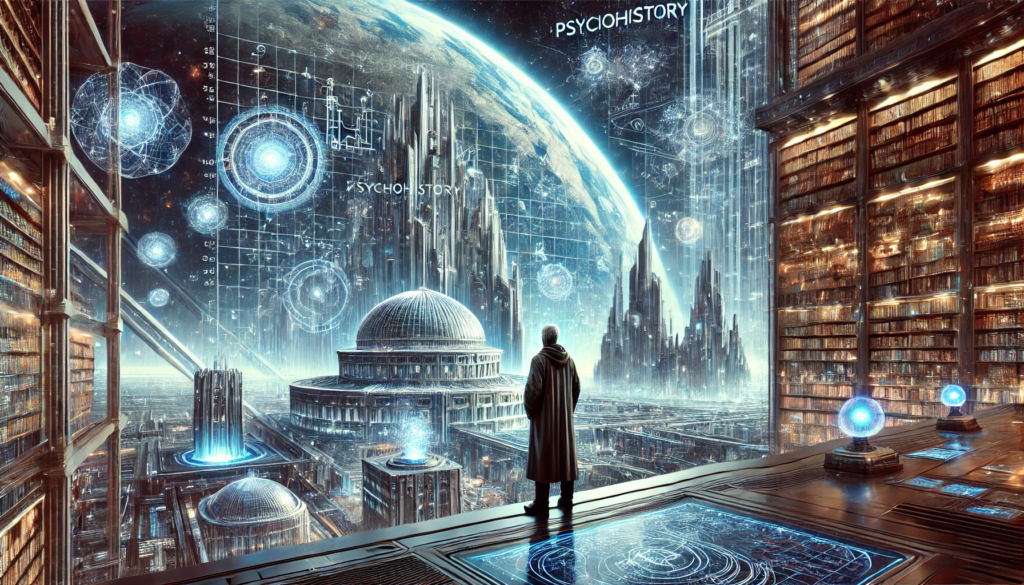
Overview:
The “Foundation” series is a cornerstone of science fiction literature. The first book introduces the concept of “psychohistory,” a mathematical discipline that can predict the future of large populations. The story follows the efforts of Hari Seldon to preserve knowledge and culture as the Galactic Empire falls into decline.
Why Read It:
Asimov’s “Foundation” is a masterclass in world-building, featuring a sprawling narrative that spans centuries. The series’ exploration of the rise and fall of civilizations, the role of science and knowledge in society, and the nature of power has influenced countless other works in the genre.
8. “Snow Crash” by Neal Stephenson
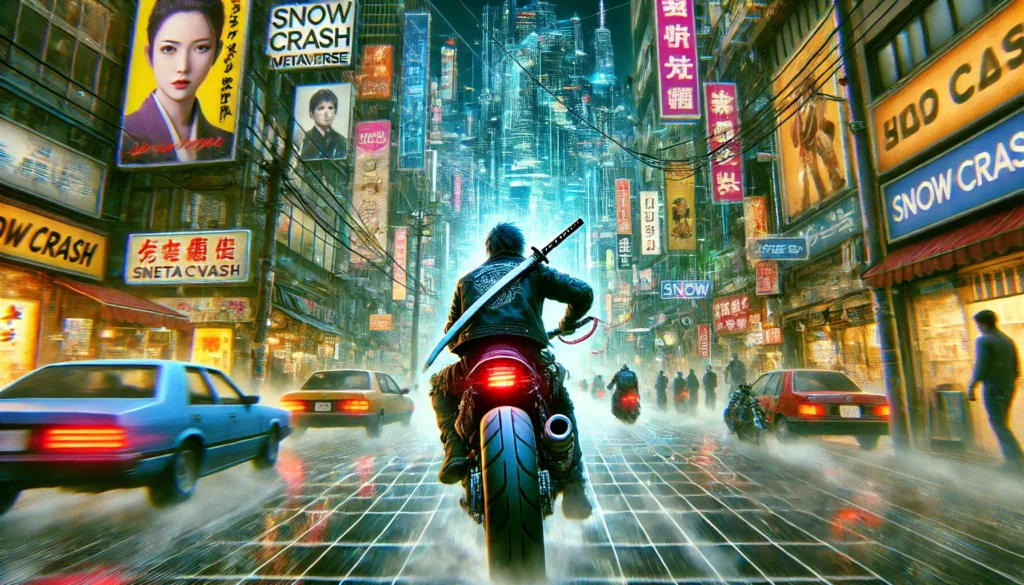
Overview:
“Snow Crash” is a fast-paced cyberpunk novel set in a future where the United States has fragmented into corporate-controlled city-states. The story follows Hiro Protagonist, a hacker and pizza delivery driver, as he uncovers a conspiracy involving a new virtual drug called Snow Crash.
Why Read It:
Stephenson’s novel is a thrilling blend of action, humor, and social commentary. “Snow Crash” offers a prescient look at the digital world, exploring themes like virtual reality, information overload, and the power of language in shaping our perceptions of reality.
9. “The War of the Worlds” by H.G. Wells
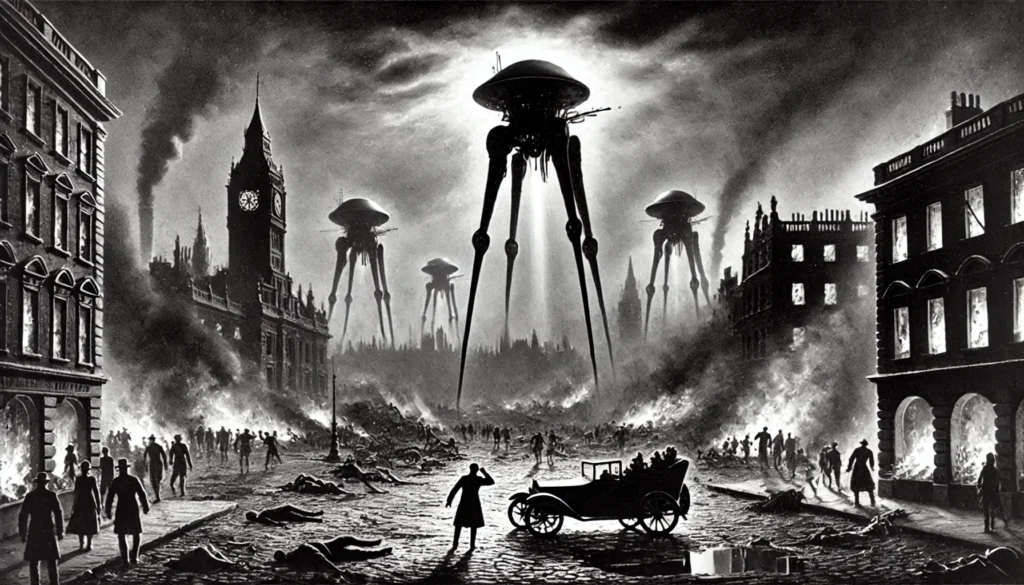
Overview:
“The War of the Worlds” is one of the earliest works of science fiction, depicting an invasion of Earth by Martians. The story, told from the perspective of an unnamed narrator, details the panic and destruction that ensue as the Martians devastate London with their advanced technology.
Why Read It:
Wells’ novel is a classic of the genre, exploring themes of human survival, the impact of technology, and the fragility of civilization. “The War of the Worlds” remains a compelling read, offering both thrilling action and a reflection on humanity’s place in the universe.
10. “Hyperion” by Dan Simmons
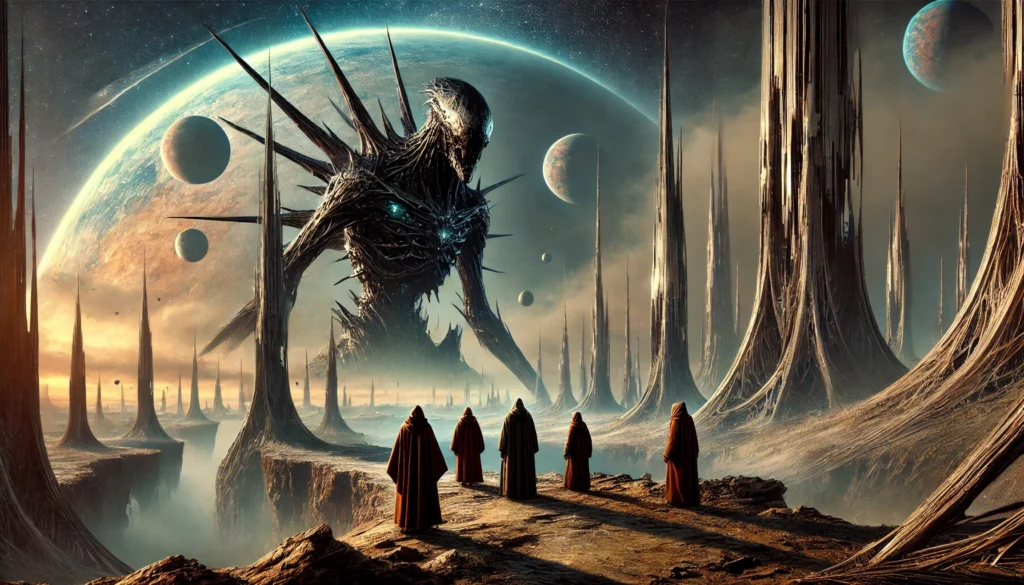
Overview:
“Hyperion” is a sprawling, multi-layered novel set in a far-future universe where humanity is spread across numerous planets. The story is structured around the pilgrimage of seven individuals to the distant world of Hyperion, each with their own tale to tell and a connection to the mysterious and terrifying creature known as the Shrike.
Why Read It:
Simmons’ novel is a rich, complex work that combines elements of space opera, horror, and literary fiction. “Hyperion” challenges readers with its intricate narrative and philosophical themes, making it a must-read for fans of deep, thought-provoking science fiction.
Conclusion
These ten books represent the pinnacle of science fiction literature, each offering a unique vision of the future and exploring themes that resonate far beyond the genre. From the dystopian warnings of Orwell and Huxley to the expansive universes of Herbert and Asimov, these novels have shaped the way we think about technology, society, and what it means to be human. Whether you’re looking for thrilling adventures, intellectual challenges, or simply a good story, these science fiction classics are sure to captivate your imagination.

